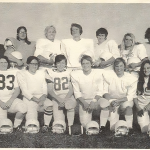Did you know that 103 million Americans have high blood pressure? That means that 46 percent of the adult population is at excessive risk for strokes, heart failure, vision loss, dementia and kidney disease.
Recently, numerous studies have shown that high blood pressure (hypertension) is greatly affected by high stress. According to the American College of Cardiology (ACC) it is important to identify psychosocial stress as a risk factor.
Reduce Stress and Drop Blood Pressure: Patients with high blood pressure who were on blood pressure drugs and had made significant lifestyle changes, but their hypertension continued to be difficult and distressing. A special program of stress reduction was added to their treatment. Blood pressure was lowered due to lessening their stress .
A case in point: A friend and colleague, and I practiced law in Florida for many years. Kaye was diagnosed with hypertension and started taking prescription drugs to reduce her blood pressure. She relocated to Montana. Being familiar with research and wiling to make whatever changes necessary to help her health, she started investigating. Kaye found that by emphasizing fruits, vegetables, legumes, beans, whole grains, fish, and nuts blood pressure could be lowered naturally.
Kaye wasn’t going to just change her diet. She stayed on the drugs her doctor prescribed.
She found that increasing her fluid intake was also important. She started drinking water equivalent to 50% of her body weight, 130 pounds. She drank 65 ounces every day in the morning.
By increasing potassium through avocados and sweet potatoes, avoiding junk and processed foods, and increasing dark leafy vegetables (especially spinach), flaxseeds, fish, liver, plus two capsules of garlic per day because she doesn’t like the pungent taste of raw garlic, she helped reduce her pressure. Kaye read a study extolling the virtues of cocoa. While in the cold climate, she loved the hot cocoa. Especially being from Florida.
At the time she was making all these changes, Kaye confided in me that she was dealing with significant stress of family and some friends being unkind and taking advantage of her. Her high mental and emotional tension was mirrored in her high blood pressure – hypertension.
As a Health Care Advocate and Coach I was teaching a course in Mindful Meditation. As an author I had written the first in a series of workbooks on The 7 Laws of Mindfulness.
Kaye enthusiastically attended the course. Not only was it a pleasure to spend enjoyable and constructive time with her, but she eagerly began meditating on a daily basis. Within two weeks her whole demeanor changed. Her stress reactions were reduced to practically nil. We watched her blood pressure do the same.
Currently, her calmness is obvious. She’s more social and laughs more, too. Kaye is back in Montana and connects with authentic friends. And, she has minimized contact with the family members who want to use her for only their benefit.
Medical and Health Care Information:
How Hypertension is Defined: Resting blood pressure persistently over 130/80. Almost one/half (50%) of adults have hypertension, which poses an increased risk for heart attacks and strokes! It appears that the greatest impact is among younger people. The prevalence of high blood pressure has tripled among men under age 45, and doubled among women under 45.
American Heart Association (AHA) categories: Normal blood pressure: less than 120/80. Elevated: systolic between 120-129 and diastolic less than 80. Stage 1: Systolic 130-139 or diastolic 80 – 89. Stage 2: Systolic at least 140 or diastolic at least 90. Hypertensive crisis: where systolic is over 180 and/or diastolic over 120.



